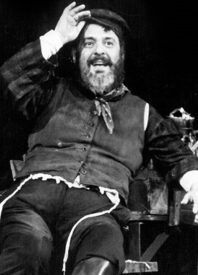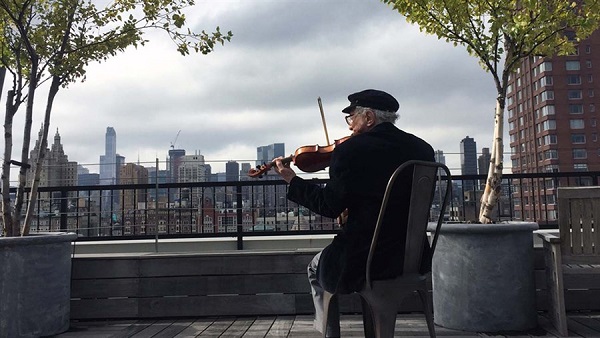
I liked Fiddler on the Roof but it felt merely like a quaint time capsule of the twentieth century. Max Lewkowicz’s Fiddler: A Miracle of Miracles‘ job here is to remind its worldwide fans of this great musical. The documentary also exists to convert lukewarm fans like me to show how it still resonates with future generations. And it’s mostly successful at the latter task, as it shows its audience every actor who’s played Tevye. In doing so, every one of those actors become an incarnation of the same person, making fiction come alive. It shows how those multiple actors also embody the spirit of the person who wrote the musical’s source material. Those actors, and therefore, us, feel Sholem Aleichem, using historical angst and making that reverberate through his writing.
Miracle of Miracles has it share of both those montages and talking heads, the former segments spicing up the latter. Those talking heads, as they customarily do, contextualize Boradway’s musicals as part of Western tradition and its tropes. Teyve’s daughters aren’t just lovesick girls playing out a version of Pride an Prejudice in a Russian Jewish shtetl. In watching this documentary, the musical re-imagines Gentile literature where both fathers and daughters fight hard for equal footing. There’s conflict here, the documentary juggling our memories, showing that Tevye’s eldest daughter, Tzeitel, sings the Matchmaker song cynically. Bock, Stein, and Harnick’s musical adapts Alechiem’s short stories and show them through the lenses of early feminism. The musical came just in time for young female audiences to see Tzeitel and remind them of The Feminine Mystique.
Miracle of Miracles shows the original production’s cultural impact as well as the artisty behind a great theatrical work. Bock, Stein, and Harnick got Jerome Robbins to choreograph Fiddler after seeing his great work in West Side Story. A significant portion of the movie shows stills of Robbins as talking heads discuss how complex his genius was. Perhaps for the first time, he needed his identity as a gay Jewish man to reflect through his work. The film shows how much research he and the other creators did to evoke these specific origin stories. Robbins specifically visited the shtetl where his grandparents are from to see that the Holocaust wiped out the Jewish population. It’s as if working on and researching these dance formations was a way to bring back those memories.
The film doesn’t do everything perfectly as it moves out of the the talking heads and the corresponding archive footage. It introduces us to one creative contributor or to one artist who inspired the musical and its era. But sometimes those introductions get out hand, specifically in the way that the film visualizes these otherwise beautiful ideas. Animation segments seem to try to evoke painter Marc Chagall, who inspired Boris Aronson’s lived in original set design. But these segments have an amateur aesthetic to them that don’t fit with how refined every scene looks. The doc’s large scope can also be a problem, as it shows how the musical relates to cultural movements. But those are just nitpicks, since this doc makes audiences and even doubters to give Fiddler another listen.
Fiddler: A Miracle of Miracles starts its week long run at the Hot Docs Cinema. This cinema will be screening this doc as much as three times a day. There’s no excuse not to watch it now.
- Release Date: 8/23/2019


